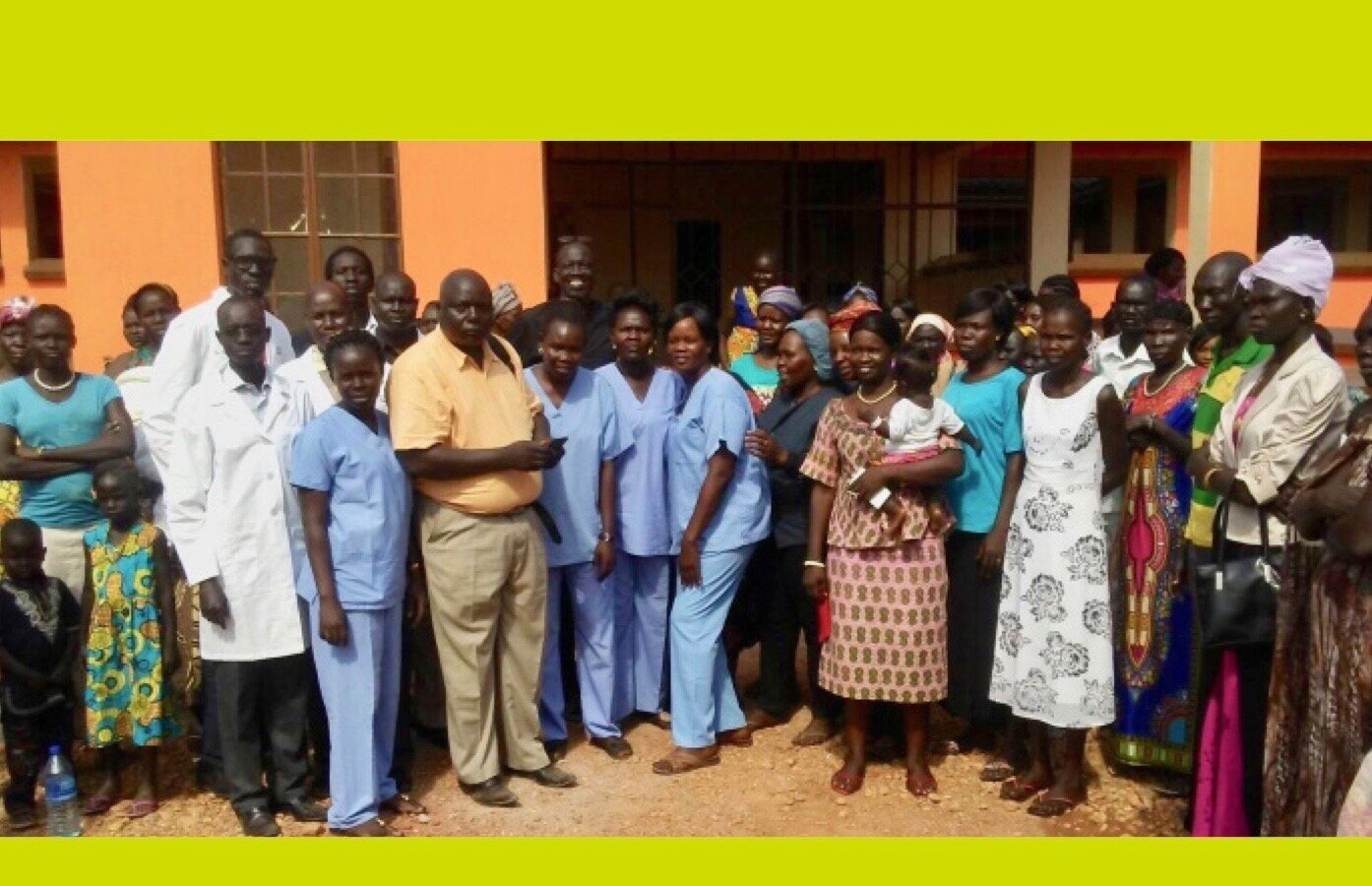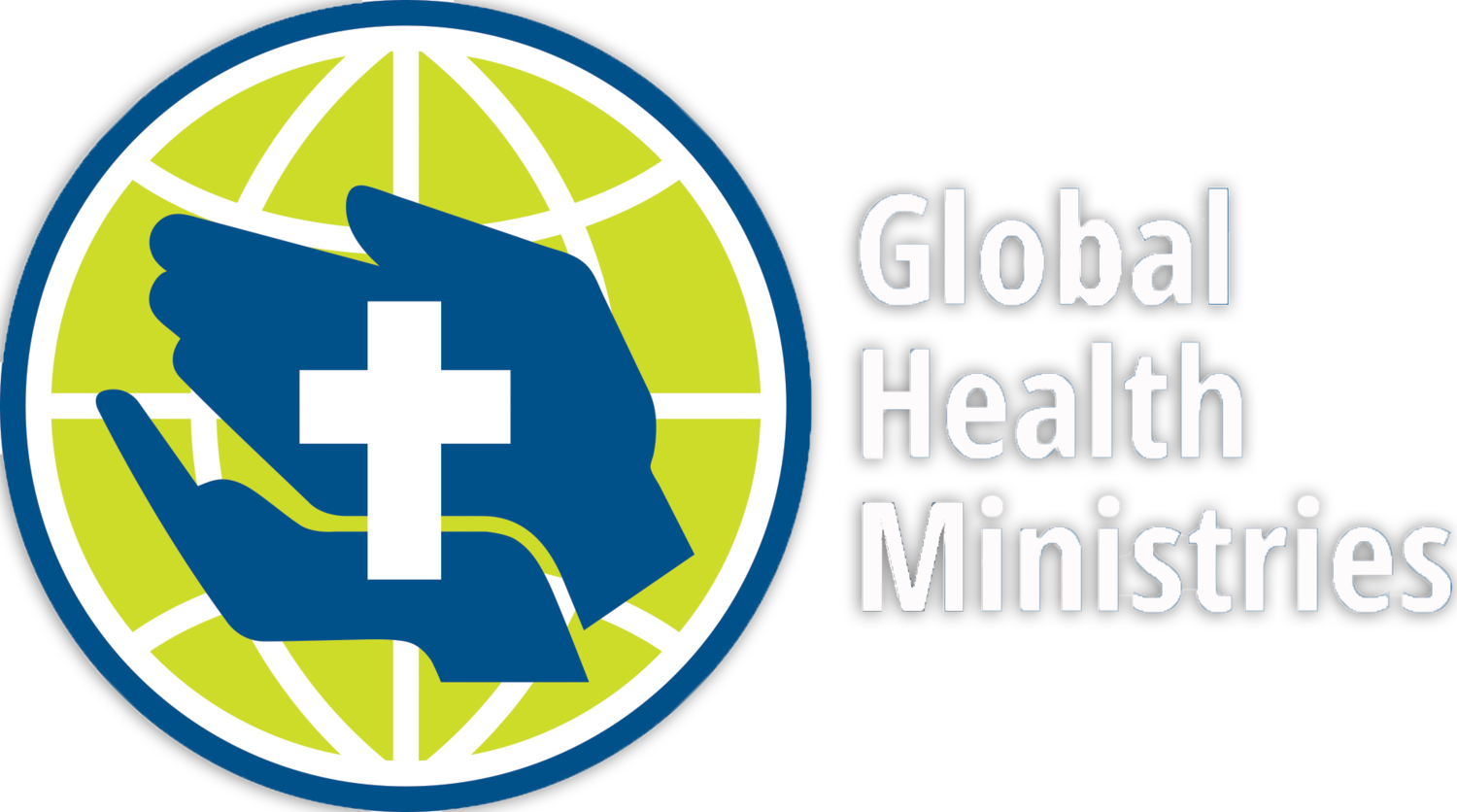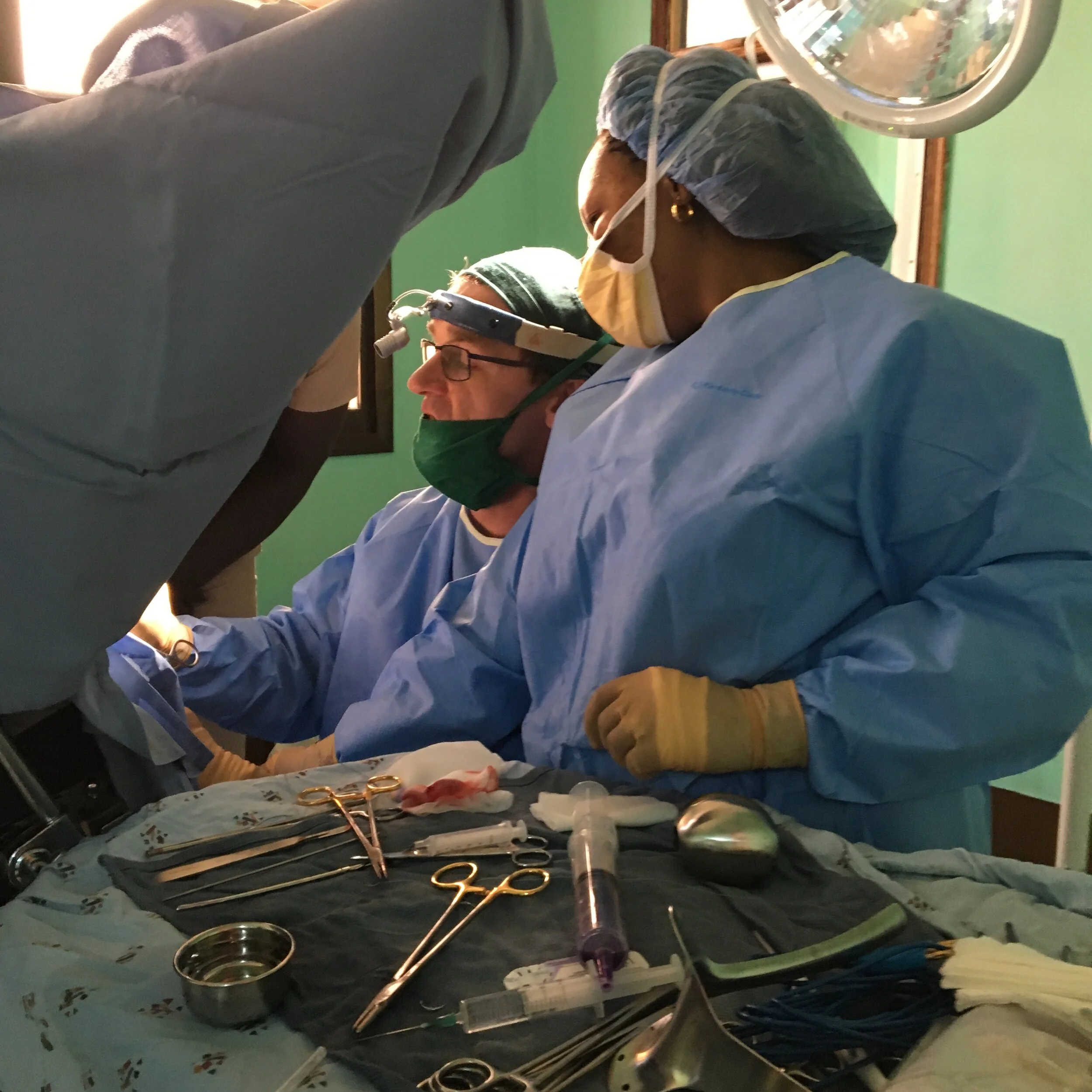
South Sudan
GHM in South Sudan
On the outskirts of Juba, South Sudan, the “Referendum area,” is home for about 400,000 people, most of them internally displaced people seeking relative safety in the city, or refugees returning from camps in Kenya, Uganda, and Ethiopia after years of civil war. With no public electricity, no water, no sewer, no schools, and no clinics, the only services available are from expensive private businesses. Here, GHM has partnered with the Evangelical Lutheran Church in America (ELCA), the Evangelical Lutheran Church in South Sudan (ELCSS) and the Fistula Foundation (FF) to make a difference. The ELCA and the ELCSS chose this place to construct a center for reconciliation, designed to include health services. Beginning in 2017, GHM has partnered to ship medical equipment and supplies to establish a health clinic, offered consulting services on management, and joined hands with the FF to sponsor fistula repair camps. The Fistula Foundation has provided critical support and funding for outreach, surgeries, training South Sudanese surgeons, and even medical equipment needed for fistula surgery.
This clinic became a magnet for maternal and child health concerns overnight, and in June, 2021 this focus was fortified with the official opening of a new maternity unit providing access to midwife-assisted deliveries, 24 hours/day. With this expansion, the clinic has been upgraded to a Primary Health Care Center.
The next horizon is to accompany the local leaders to develop sustainable community health worker outreach to educate and empower the community to improve their own health. GHM’s consulting service, GHM Consulting, is leading this focus.
Data from WHO, and The World Bank
Meet Atong Mawien
Atong Mawien was married when she was 15 years old to a man who paid a lot of cows to her father and brothers. She’s the only daughter in the family and according to Dinka culture, their only source of wealth. In the last five years Atong has had four babies, but the first was delivered stillborn after three days of obstructed labor. During that agonizing delivery she developed a fistula, a small hole caused by the pressure of her prolonged labor. Atong’s fistula meant that she constantly leaked urine but despite her condition, she continued to get pregnant. After her third child, Atong refused to get pregnant again, even threatening suicide when her husband refused her entreaties. The announcement of the March 2021 Fistula Camp by the Lutheran Church offered Atong hope for the future. The Lutheran Church Centre helped transport Atong to Juba where she underwent successful fistula repair. Just 20 years old, she looks forward to rejoining her family, thankful to Fistula Foundation, the Lutheran Church and the surgeon for this life-restoring service. It’s estimated there are as many as 60,000 women and girls living with fistula in South Sudan.
Meet Dr. Riek Gai Kok
The Honorable Dr. Riek Gai Kok, South Sudan’s Minister of Health, was in awe. The efforts of the ELCA, the ELCSS, the Fistula Foundation and GHM had made it possible for a camp to bring healing fistula surgery to 29 women that week. Obstetric fistula is a condition that results in chronic incontinence, most often for women who give birth without access to medical help and who experience prolonged, obstructed labor. Dr. Riek Gai Kok was in awe, not because of the surgery freely given. He was noticing a more profound healing in the room. These women and families came from a wide variety of tribes across the nation. These tribes are engaged in civil conflict. He pulled the doctors close and said, "We have not been able to do this, but you have brought people from all the tribes of South Sudan together." It was a concrete expression of love, crossing all boundaries…and the effect is truly miraculous.




